- Home
- Todd Strasser
Summer of '69 Page 18
Summer of '69 Read online
Page 18
Yesterday was the last day
Of the best of my life.
With dawn and the first faint hint of gray light, Tinsley leads me to the pool house, which has a small kitchen, bar, fireplace, and couches. Half a dozen long thin poles that vaguely resemble golf clubs, only with leather handles and wooden hammer ends, are piled into a corner, along with several pairs of high black leather boots with spurs. Near a back door are a number of tennis rackets, cans of balls, and tennis shoes with ochre stains around the edges.
Tinsley and I drop our towels, my formerly pathetic penis now prone for promiscuity, and descend onto a shag rug.
Sex is unhurried, every delicious sensation intensified, explosions of Day-Glo colors on the insides of eyelids. Tinsley takes charge. There is surprising strength in those slender legs and arms. When I put my lips on her and her legs go taut against my ears, the muscles of her thighs are as hard as flesh can be.
This is how Tinsley’s mother discovers us. Mrs. Stockton stands in the doorway of the pool house with her arms crossed tightly, as if to keep herself from flying apart. The clenched tightness of her face is bereft of surprise, instead filled with glowering anger. Something tells me this isn’t the first time she’s walked in on her daughter in flagrante delicto.
“Get dressed,” she snaps harshly, then backs out of the doorway.
Tinsley and I wordlessly pull on our clothes. Emptied of arousal, my brain feels sluggish, muddled, and filled with regret.
What have I just done? What am I even doing here?
It isn’t revenge for whatever Robin’s doing with Samuel. (I’ve never seen much point to that.) Did I run to Tinsley last night for comfort? If so, I’ve badly miscalculated. Now that I’m down from the acid and drained of lust, a gritty discomfort fills the void. Tinsley seems hardly aware of me.
“You okay?” I ask.
“Bitch,” she growls.
The end of a trip is never pretty. The world takes on a yellow cast. Skin feels waxy, clothes grimy and smoky. I feel hollowed out and haggard, filled only with the woe of losing Robin. Now it’s my turn to yearn for a long hot shower, a boatload of soap and shampoo — and the strongest, most reality-dulling downers available.
Outside the pool house, I see what wasn’t visible in the dark last night — the red clay tennis court behind a tall green hedge. The garden cupola surrounded by wildflowers. The morning air is cool and fresh. Three matching light-brown long-haired dogs of some breed I’ve never seen before bound over the lawn after being inside all night. Tinsley’s mother stands by the French doors of the large beige-brick chateau on the other side of the pool. Without saying goodbye to me, Tinsley stomps toward her. Meanwhile, Mrs. Stockton’s eyes meet mine and she points at a slate path around the side of the manse. “You can go that way.”
The path leads to the fountain at the head of the driveway. That’s when I remember that we came here last night in Tinsley’s Spitfire.
Looks like I’m walking home.
Is it better to have
Had your wish
Or to only have
Wished you’d had?
The long winding driveway is lined with evenly spaced trees and immaculate white fencing. To the right and left spread spacious green lawns with a smattering of barrels and low jumps that I imagine are the practice tools of a serious equestrian. (The morning Tinsley and I sat on the bench outside the U.S. Customs and Border Protection building, waiting for them to find us a ride back to Long Island, she told me that until this year, she’d spent her summers at a riding academy in Bern, Switzerland. This explained the saddle in the Spitfire’s trunk and the strength in her thighs. And those golf club–like poles in the pool house must be polo mallets, left behind, I suspect, by her father.)
I let myself out the tall metal gate. After being up all night on acid, I feel like my brain is mired in sludge and running at about 50 percent. But that doesn’t prevent more regret over Robin from oozing in. Strangely, this morning one thing seems to have come into sharper focus — I can’t give up on her. I just can’t. It’s so weird because last night I recalled how easy it had been for me to give up on the tennis court. How I could tell myself that it didn’t matter, that I didn’t care. But I can’t do that with Robin. What I did this morning with Tinsley doesn’t matter. What’s going on between Robin and Samuel doesn’t matter. I must try to get her back.
From Tinsley’s, I find my way to the service road of the Expressway. There’s no sidewalk, so I stay close to the curb, where my boot heels scrape along the road grit, cigarette butts, and other detritus. The same rubbish I used to ride past when I was younger and ferrying jars of coins to banks for the paterfamilias. Most of the cars give some berth when they pass, but now and then a car or truck barrels past within a few feet and the trailing wind whips my hair around. Someone shouts, “Get a haircut!” Someone else throws an empty RC Cola can that misses me and lands in the weeds beside the road.
A white Jaguar XK-E passes.
The first time the paterfamilias goes to see the junk-mail factory, he brings me along. It’s the beginning of sophomore year, and I guess he wants to introduce me to the fascinating world of business. He should be taking Arno; I could care less. The only reason I go is because it’s easier than not going.
The factory smells of ink and is filled with workers feeding stacks of mail inserts into clicking, wheezing inserter machines. The owner is an older and grayer version of the paterfamilias, tanned, nattily dressed, trim and athletic looking. His office is neat and orderly except for a large corkboard covered with snapshots of him, his friends, and lots of dead fish. The owner points to the framed photo on his desk of his gleaming white fishing cruiser. He tells us that every summer he fishes off Montauk Point at the eastern end of Long Island. Every winter he hires a captain to take the boat down to an island in the Bahamas called Bimini. A couple of times a month, he flies down with his friends and fishes there. These stories are the owner’s way of making sure we know he’s made a lot of money by paying his employees less than they deserve.
While he talks, the owner keeps looking out the window at a dark maroon Jaguar XK-E parked outside. It sparkles in the fall sunlight. The owner says it’s brand-new. That is another way of saying he has a lot of scratch, in case we didn’t get the message the first time.
The owner places some ledgers on the desk so the paterfamilias can inspect them. The paterfamilias skims thoughtfully through the pages. In a low, confidential tone, the owner says that the company is a gold mine, easy to run and practically prints money. He says he’d always hoped his sons would take over the business, but one son is a big-shot lawyer in New York and the other is a big-shot producer out in Hollywood and neither wants anything to do with junk mail. The owner pretends to be sad about that, but you can tell he’s proud that his sons are big shots.
Then the owner looks at me, with my longish hair and work shirt, bell-bottoms, and boots. He’s probably thinking that there’s no way in hell I’ll ever become a big shot. To him, I probably look more like the kind of losers he takes advantage of in his factory.
The paterfamilias asks the owner if he’d mind if “his people” look through the books. That is my father’s way of letting the owner know he’s a pretty heavy dude himself, even though no such “people” exist. The owner says that’s fine, but that if the paterfamilias is serious, he shouldn’t dawdle, because “other parties” are interested.
In the car going home, I wonder what that meeting was really about. My father’s father — I guess that would make him my grandfather, but I never knew him — abandoned his family when Dad was four. My father grew up poor during the Depression. He worked his way through college, living and serving as the janitor in a boardinghouse, where he made twenty-five cents an hour. Is that why he’s become a bloodsucking capitalist blowhard? It wasn’t even like he and the owner of the junk-mail business were trying to outdo each other. It was more like they shared a willingness to swallow each other’s baloney. The pa
terfamilias and his make-believe “people.” The owner and his make-believe “other parties.”
Is this the life the paterfamilias wants for me? To be able to show off? To be able to acquire more material possessions than the next guy and let everyone know it? (Welcome to Capitalist Bullshit 101.)
It takes me more than an hour to walk home from Tinsley’s. As I trudge up the driveway, the garage door opens and there’s the paterfamilias in his fresh white tennis clothes, on his way to the club for his first match of the day. He tosses his tennis bag into the MG, then turns and sees me. Guess it’s obvious I’m coming back from a long night out. I nod as I go by. He nods in return. Ships passing in bright daylight.
8/3/69
Dear Robin,
This is probably the sixth time I’ve started this letter. Each time I get about this far and don’t like what I’ve written and tear it up. But this time I’ve gotten this far and haven’t torn it up. Look, I’ve gotten a little farther. And now even farther. Hey, look, it’s a paragraph.
Okay, enough of that. But I really have tried a bunch of times to write to you. Yeah, as you expected, I was totally blown away by your letter about Samuel. But you may be surprised to learn that I’m not angry. Not at you, at least. If there’s anyone I’m angry at, it’s me. I see now that I put you in some really uncomfortable situations. It wasn’t my intention. But like you’ve always said, I’ve got those blind spots. I could have, should have, been a lot more sensitive to your needs. I can’t begin to tell you how sorry I am about that.
By the way, was Samuel ever in one of those blind spots? Did you drop hints about him that I didn’t pick up on? I can’t remember any, but if I could, I guess they wouldn’t be blind spots, right?
Here’s the thing. I really, really, really love you. More than I thought I could love anyone. I love you so much that I can’t give up and walk away from what we have together. I’m still hoping that somewhere deep down you feel the same.
I know I’ve made mistakes. And I know you dropped hints that I didn’t take seriously. I guess I didn’t realize how serious you were. Now I’m hoping that your letter about Samuel was actually your way of letting me know how serious you are about what has to change for us to continue together. If that’s what it was, let me tell you, it worked. I’m ready to change. I’m ready to do whatever I have to do to keep your love. Some of my options are kind of limited at the moment (it’s not like I’m going to find a college close to Middlebury that will accept me), but I do have some promising alternatives. Hopefully I’ll be able to take the army induction physical in San Francisco and get a 1-Y deferment. (I know you’re in Canada, so it’s not like anyone up there would care, but please don’t tell anyone about that, okay?)
Once I’ve gotten my 1-Y, I still plan to move to Vermont. Maybe after a year working up there, I’ll have a better idea of what I might want to study in college, or maybe I’ll go into the Peace Corps. By the way, I’ve cut way down on the grass and cigarettes.
Sweetheart, I know things didn’t go well on that trip to Maine, and I’m really sorry about that. But please don’t forget all the good times we’ve had, because we’ve had a ton more of them than bad times. The ski trips we took last winter. Tobogganing in the park. Building snowmen. Hot chocolate with marshmallows. Reading e. e. cummings. Popsicle stick sailboats on rainy days. The prom. The beach on senior cut day. I could go on and on. Seriously, we both know there’s been much much more good than bad. Let’s give it another chance, okay? What we’ve built together is far too important to let crumble. Believe me, I’m ready to do what needs to be done.
Love you forever,
Lucas
Lou Wilkinson has taken a shine to me. The fact that I showed up in the paterfamilias’s British-made MG appears to mean that we are kindred spirits who appreciate the finer, and quirkier, aspects of British automotive engineering. Hungry for any kind of distraction from the empty gloom of a Robinless existence, I fall into a routine with him. Each afternoon after work, I sit in Lou’s hot, stuffy showroom office for five or ten minutes while he bitches about the cheap “Jap” Honda and Yamaha cycles flooding the market. Motorcycles that “lack pedigree and gravitas.” Then he lets me take the BSA out to the lot for a practice session.
Entering the showroom this afternoon, I pass a familiar-looking, heavyset man in a blue blazer on his way out. We share a brief nod. Where have I seen him before?
Lou is polishing the silver fender of a cycle with drooping handlebars. “Beauty, isn’t she?” he says. “A forty-eight Vincent Black Shadow. One of the fastest bikes ever built. Just came in this morning. You don’t see many in this condition.”
I point back to the showroom entrance. “Was he interested?”
“Mr. Brown? Oh, yes. Quite the collector of fine British motoring. Comes by now and then when I’ve got something interesting. Hopefully he’ll snap this up before someone else does. I believe he was a colonel in the war, stationed in London. Something to do with military intelligence.” Lou pauses, then drops his voice. “Always considered that a bit of an oxymoron.”
I’ve heard that one before but smile obsequiously. Maybe Mr. Brown looked familiar because I’ve seen him here?
“Actually, I believe he’s still involved in the service somehow,” Lou goes on. “Came back to the States and got into real estate. Electrical engineering, if I’m not mistaken. Made a fortune wiring those cookie-cutter houses that popped up all over Long Island after the war.” Lou puts his hand on my shoulder. “Well, now, lad. Shall we complete our transaction?”
In the showroom office, the stale scent of grease and tire rubber hangs in the air. Late-afternoon sunlight filters through the filmy plate-glass windows. While Lou fills out the paperwork, I smoke a cigarette and think about writing another letter to Robin. But what else is there to say? The thing is, I have this yearning to write . . . something. Maybe I’ll send Chris a letter telling him what’s going on with Robin. Or what about a diary? (Locked and hidden from my parents, of course.)
The paperwork is complete. I pay for the cycle with the last few hundred bucks in my savings account. Lou explains that it will take three or four days to get the insurance and registration. After that I can take possession of the BSA. He dabs his face with that yellowed handkerchief and asks if I have any friends “who are like me” and appreciate cycles built with old-world craftsmanship and tradition. I get the feeling he hopes that the counterculture will flock to European motorcycles the way we’ve flocked to VW microbuses, Volvos, and Saabs.
Later, Tinsley picks me up to see Easy Rider. A couple of nights ago, while we waited to get off on the leftover acid from Arno’s vial, she told me that as a result of going (however briefly) with Barry and me to Canada without permission, she’d been grounded. But what the rich call grounded must be different from what the rest of us think it is, because here we are going to the movies. (Could it be literally grounded, as in “You’re not allowed to use the family airplane”?)
Before going in, we get high behind the theater. (I’m not the wasteful type. In order to cut back on smoking weed, I first need to use up my current stash. Besides, this is the first time I’ve turned on in a while. It’s true that Tinsley and I did trip a couple of days ago, but no ganja was consumed.)
Having burned through a fatty, we enter the theater in an improper state of mind. Tinsley places on my lap the flowery shawl I’d assumed she brought in case the air-conditioning is too cold. Next thing I know, she takes my hand and slides it under the fringed leather bag on her lap. Once my hand is properly positioned there, she slides her hand under the flowery shawl.
Princess Tinsley of Lapland and her risk taking. Maybe she needs it. I’m not sure I do, but why spoil her fun? Thus, the movie isn’t the only thing we find stimulating. (Have the folks sitting behind us noticed our quickened breaths?)
As best as Lucas the Distracted is able to follow, the movie is about two longhairs who use the profits from a drug deal to buy motorcycles and ride acro
ss the country looking for truth and meaning. Along the way, they encounter the sorts of bigotry and hostility that long-haired freaks often encounter. Only because it’s a movie, theirs is more extreme and violent (though, come to think of it, considering what happened to Cousin Barry, maybe not).
The two actors ride choppers with extended front forks and lots of shiny chrome. One has ape bars. These are the kinds of cycles that Lucas associates with motorcycle gangs like the Pagans and Hells Angels, not with peace-loving longhairs. He feels bad for Lou Wilkinson. Easy Rider is the number one movie across the country this week. Any freaks who see it are bound to think that custom-made choppers are the way to go, not clunky old British bikes with pedigree and gravitas.
After the movie, Tinsley drives to the junior high and leads Lucas to an isolated spot in the woods. Along the way, another doobie gets reduced to ash. The golden-haired woodland sprite finds a spot suitable to her whims and spreads the blanket. She doesn’t ask if this is what Elf Lucas wants; she just assumes. Well, she’s right. It’s not like they were merely holding hands during the movie. Elf Lucas feels ready to go. (Besides, it would defy belief to think that up near the polar ice cap, Lady Robin’s only been rubbing noses with Samuel the Skuzzbucket this summer.)
Tinsley and I start to make love. But despite our being primed for action, it feels strange that we’re doing this. Last time, we were tripping — two ids, stripped down to instinct, impulse, and lust. But now my brain is going AWOL. It’s watching the days peel off the calendar month of August, each day counting down to the Dreaded Induction Physical. Next, it’s in an army examination room in San Francisco, anxiously waiting to see if the doctor really will give me a 1-Y deferment. And now it’s with Robin, doing the New York Times crossword in the high-school library.
Oh, what I’d give for it to be Robin on this blanket, not even having sex, just knowing she wanted to be here with me.

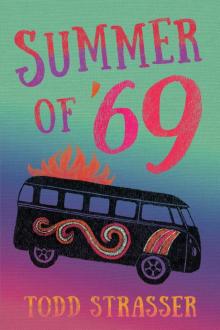 Summer of '69
Summer of '69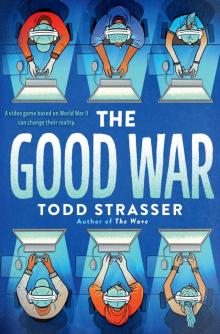 The Good War
The Good War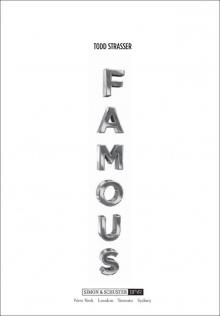 Famous
Famous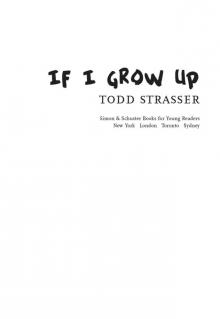 If I Grow Up
If I Grow Up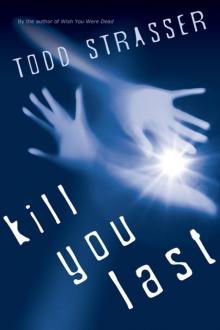 Kill You Last
Kill You Last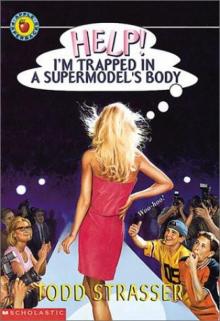 Help! I'm Trapped in a Supermodel's Body
Help! I'm Trapped in a Supermodel's Body Price of Duty
Price of Duty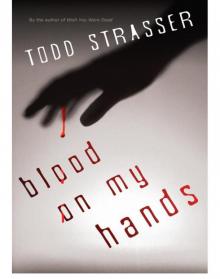 Blood on My Hands
Blood on My Hands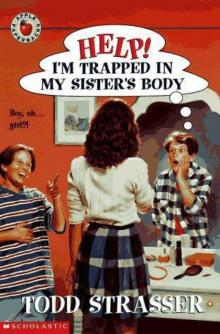 Help! I'm Trapped in My Sister's Body
Help! I'm Trapped in My Sister's Body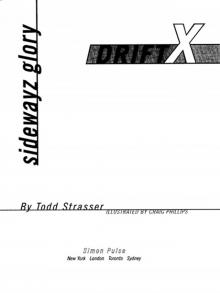 sidewayz glory
sidewayz glory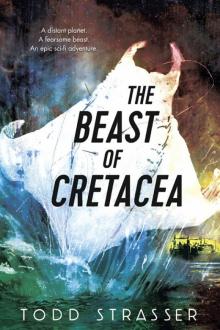 The Beast of Cretacea
The Beast of Cretacea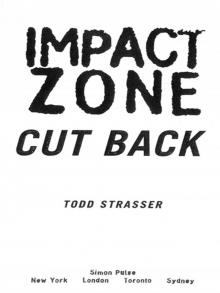 Cut Back
Cut Back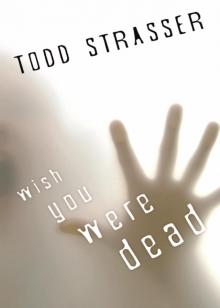 Wish You Were Dead
Wish You Were Dead The Wave
The Wave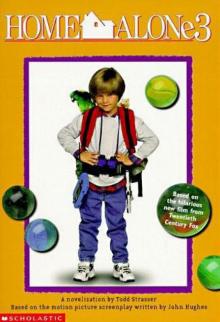 Home Alone 3
Home Alone 3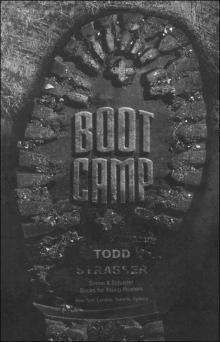 Boot Camp
Boot Camp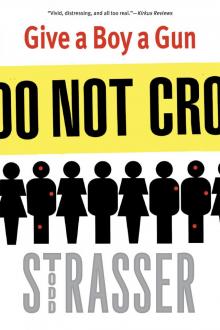 Give a Boy a Gun
Give a Boy a Gun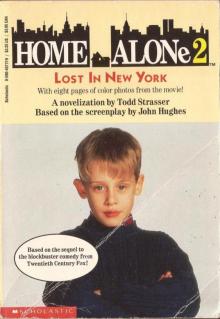 Home Alone 2
Home Alone 2 The Shore
The Shore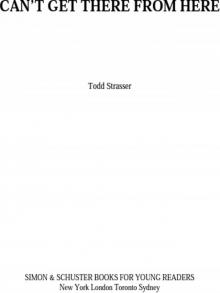 Can't Get There from Here
Can't Get There from Here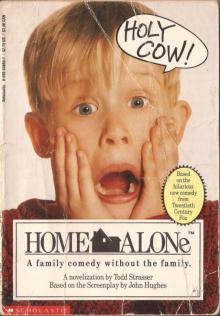 Home Alone
Home Alone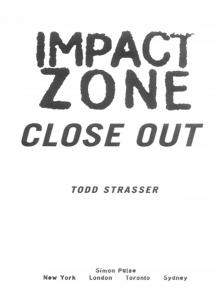 Close Out
Close Out No Place
No Place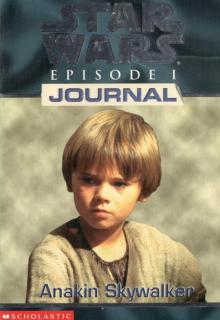 Star Wars - Episode I Journal - Anakin Skywalker
Star Wars - Episode I Journal - Anakin Skywalker